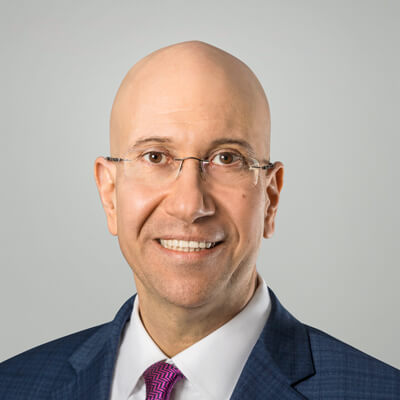Coffee & Cap
Rates Podcast
6/25/2024: Episode 92:
Host
Shimon Shkury
President and Founder
Featuring
Ben Schlegel
Director - Capital Services

HOST

Shimon Shkury
President and Founder
FEATURING

Ben Schlegel
Director - Capital Services
*The following text has been automatically transcribed and may contain minor errors. For original content, listen to the podcast episode
Shimon Shkury: Hi everyone. It's Simon Shkuri with Coffee & Cap Rates at Ariel Property Advisors. And today I'm very excited to have Ben Schlegel, one of our directors in our capital services group who does tremendous amount of debt and equity placement. Hi Ben. How you doing?
Ben Schlegel: Hi Shimon. Doing well. Thanks for having me.
Shimon Shkury: Yeah, excited about this conversation. So we know that the Fed has not reduced rates and they're signaling that maybe there's going to be one rate cut later on this year. The market in general is feeling like it's going to stay higher for longer. We've been feeling that for quite some time now. Mortgage maturities are becoming a real catalyst to transactions. We're seeing it in the office space, we're seeing it more often now. Also with rent stabilized multifamily in New York City and throughout all product types. It's clear that in many cases there will be a need for a cashing refinance. That said, Ben, we're also seeing the silver lining. We're seeing that there's a tremendous amount of capital and institutional need to invest its capital in real estate and there are different buckets of that. What are you seeing today that is different than where we were a few years back?
Ben Schlegel: No, absolutely Shimon. I think you hit it right on the head. There's a a number of different buckets of capital out there that are really looking for a home. They're looking to fill up the capital stack and every capital provider has more disciplined underwriting today and they're looking for deals at pencil. So we're seeing a lot more private money fill into the space. On the debt fund side, I think these investors are looking at deals and they're saying, I'm comfortable coming in at a lower basis and I'm getting better risk adjusted returns. And so you're seeing some debt fund, shorter term capital filling up higher in the stack than banks and the agencies might on certain deals and certain scenarios and these investors are willing to get up slightly higher in the stack, but they're still at a comfortable basis in a deal in their mind. We're seeing money in that space ranging from the high single digits to low double digits, which is slightly higher than bank financing these days, but it's more flexible capital. We're also seeing CMBS flow into the market in a bigger way. The CMBS has rolled out a five year product in the beginning of this year that has given investors another option, a full term IO option that's fixed for five years. And it's interesting 'cause it underwrites to a lower debt service coverage ratio and it's filling the gap higher than bank financing on some refinance scenarios. So that has become a popular form of capital that's filling into space. And then finally we've seen more pref equity and Mez debt flow into the capital markets these days. This capital is more for refinances is more filling the gap for deals that don't pencil or can't refinance the senior debt. And this type of rescue capital has become way more popular today and we're seeing more institutional investors who are looking for yield and better risk adjusted returns fill in this portion of the capital stack.
Shimon Shkury: Yeah, that's estimating. I think the first one was the liquidity, the debt funds that are coming in and mostly affecting transitional value add properties. And then you mentioned the CMBS, which I think is a great way to finance or more permanently finance today for five years. You mentioned the debt coverages accommodate or compete with the balance sheet lenders in the biggest possible way and even with agency. So that's super interesting. I think that the second thing you mentioned about prep equity and Mez and being in different locations so to speak in the capital stack is also unique, especially when maturities come along. I know that you're dealing with a few recapitalizations right now where there's a value add component. There's a relatively higher loan to value with a creative debt deals that requires that preferred equity slug to help move things along. What are we seeing from an acquisitions perspective in the space in general? What are people buying and how do you help them actually finance?
Ben Schlegel: From an acquisitions perspective, Shimon and we're seeing more patient capital out there, more patient capital, more disciplined underwriting. They're looking for deals that make sense, deals at pencil. I think that's the main driver. And on top of deals at pencil, a lot of buyers are looking for deals with a story behind it. I mean why is the seller selling? Is the the property under water? Is there a refinance that they can't refinance a loan? Will the bank not extend the loan? These are the questions that buyers are constantly asking and their investors are asking when they're looking at new deals. And I think that we're seeing a lot more of these opportunities come forward as fewer and fewer banks are continuing to extend loans and we continue to run into this loan maturity problem where a lot of borrowers had money at 3% and have to refinance at 7%. That's a difficult gap to fill when doing a refinance. And we're seeing more sales start to happen as a result. And we're seeing more disciplined underwriting on the side of the acquisitions folks who are looking to buy these deals. And from my seat where I help on the acquisition side, there's plenty of acquisition financing out there for deals that pencil and from the debt fund world, we're seeing some providers of capital provide very cheap options for acquisitions. And this is helping buyers get higher up in the capital stack and it's helping buyers move quickly when they see an opportunity and they're ready to pounce because they have a shorter window to close. Some debt funds can do it in 30 days while agencies and banks are doing it in 60 plus days, these days.
Shimon Shkury: I think you're bringing up some really good point. And on the debt fund side, one of the things you mentioned to me and others too is that there's some specialties too. So we're seeing some new debt funds that have been formed. For example, we just had a conversation last week with a group that's focused on debt specifically for hospitality. This is private debt. They're lending on any type of hospitality including construction, but they'll do it only for hospitality. So we're seeing some specialties there too, which I find fascinating. The other thing that you mentioned is the different transactions and when you and I spoke before, we mentioned that sometimes the actual investors, the actual equity in the deal is forcing a sale. I know you are working on a deal in the $30 million range where a sponsor bought a property a few years back, a creative debt is there added a tremendous amount of value. It's a residential property. There's a supplemental debt that can be going on the property. The sponsor wants to stay in, ready to kick more money into the property, but their investors want out and we think we can help reach that gap with actually common equity or pref. So these are also some interesting transactions that are happening and we mentioned an office transaction that we have with a creative debt where there's again an opportunity for value add where investors want to exit. So there's different iterations that are all affected by maturities, debt maturities and the difference in interest rate today and our role is really to run a process and make sure that we cover every single aspect of the capital that's out there to help get a transaction done here. Ben, thank you so much. Any closing words before we finish this?
Ben Schlegel: Look, I think we kind of hit everything kind of on the head as we've gone through this discussion. I think it's very interesting you did hit on the two different types of deals that we're looking at. We're looking at the deals that do have a shortfall in capital and on the equity side and the Mez debt side, we're looking at pref equity and Mez debt that's filling in the capital stack and providing basically a filler when a loan can't be refinanced. But you're also looking at the deals that the sponsor does have cheap debt in place and has executed their business plan and wants to provide liquidity to their current investors. But there's still more upside in the deal and we're seeing capital on the, both on the the common equity side and the profit equity side for those deals. And we're seeing better cash on cash for those deals because of the cheap debt that's in place that's fueling returns and investors are very comfortable with those deals and is actually looking for those deals because the sponsors already proven the fact that they can execute their business plan and they've already proven the market on that deal. So investors have a much better appetite for that product these days. Awesome. Thank you so much Ben, and thanks for joining us here. Thank you for the listeners as well. We'll see you next time. Thank you Shimon.